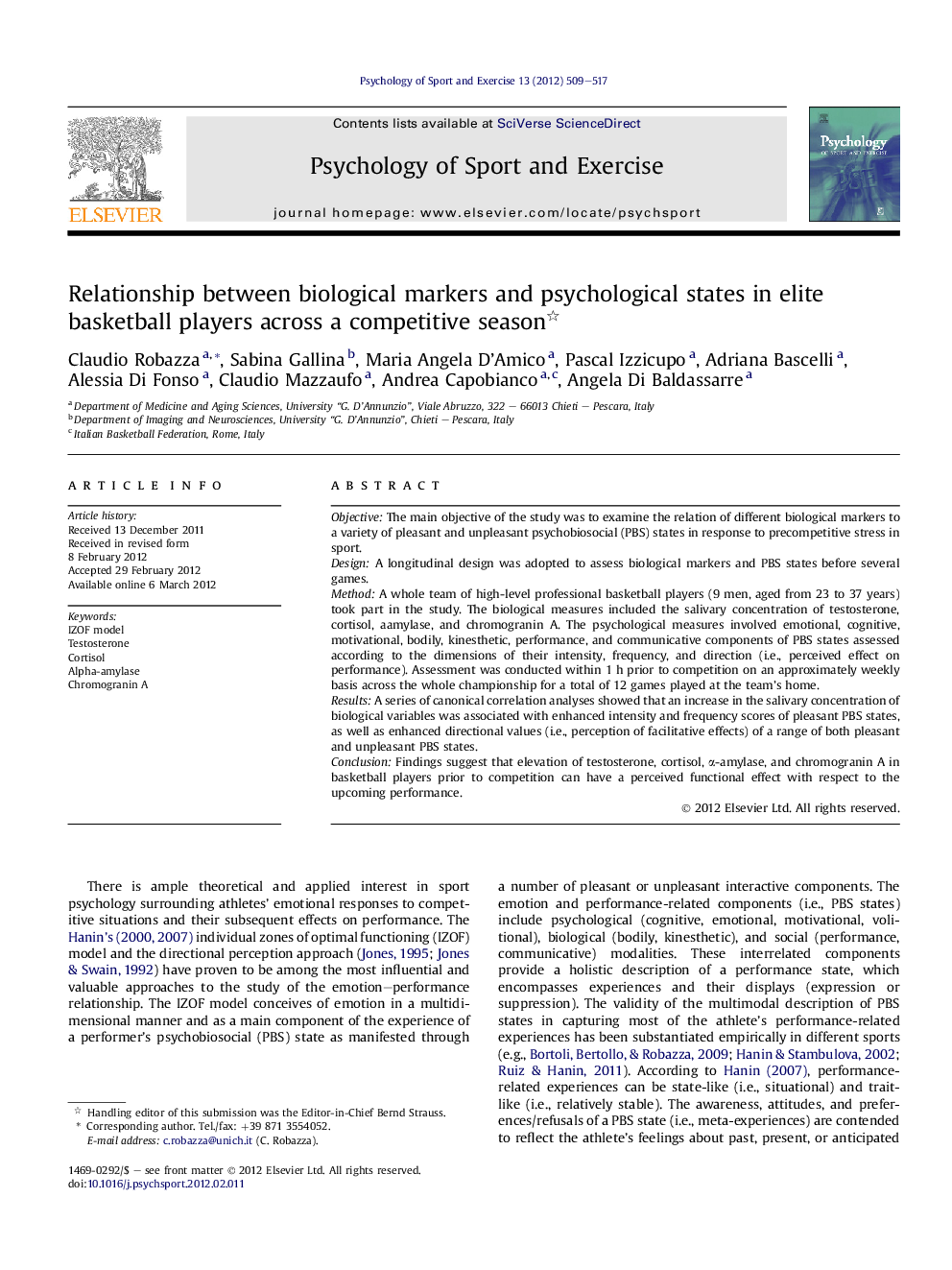| Article ID | Journal | Published Year | Pages | File Type |
|---|---|---|---|---|
| 894724 | Psychology of Sport and Exercise | 2012 | 9 Pages |
ObjectiveThe main objective of the study was to examine the relation of different biological markers to a variety of pleasant and unpleasant psychobiosocial (PBS) states in response to precompetitive stress in sport.DesignA longitudinal design was adopted to assess biological markers and PBS states before several games.MethodA whole team of high-level professional basketball players (9 men, aged from 23 to 37 years) took part in the study. The biological measures included the salivary concentration of testosterone, cortisol, aamylase, and chromogranin A. The psychological measures involved emotional, cognitive, motivational, bodily, kinesthetic, performance, and communicative components of PBS states assessed according to the dimensions of their intensity, frequency, and direction (i.e., perceived effect on performance). Assessment was conducted within 1 h prior to competition on an approximately weekly basis across the whole championship for a total of 12 games played at the team's home.ResultsA series of canonical correlation analyses showed that an increase in the salivary concentration of biological variables was associated with enhanced intensity and frequency scores of pleasant PBS states, as well as enhanced directional values (i.e., perception of facilitative effects) of a range of both pleasant and unpleasant PBS states.ConclusionFindings suggest that elevation of testosterone, cortisol, α-amylase, and chromogranin A in basketball players prior to competition can have a perceived functional effect with respect to the upcoming performance.
► The study examined the relation of biological markers to precompetition psychobiosocial states. ► Assessment included the salivary concentrations of testosterone, cortisol, α-amylase, and chromogranin A. ► Psychobiosocial states were assessed as to their intensity, frequency, and direction. ► Biological variables were found to be associated with psychobiosocial states.
